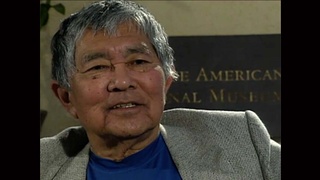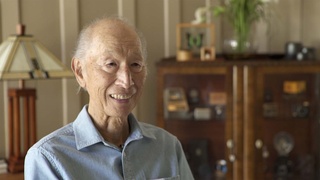Interviews
Ransacking of family home by FBI following the bombing of Pearl Harbor
But I remember when the FBI actually came, though.
He was searched, bodily searched, and he did have a wad of money, which was four hundred or something. It was rolled bills. And, in those days, you know, we didn't have these drops, banks, drops or whatever, I guess. So he had it on his body, and of course they took, stripped him of everything. They searched all the kids' room, the back room, and then they came back to him and they told him to put something together. And the only thing I... just a regular brown bag, he threw his toilet articles in, and then he was off. There was no suitcase.
But, yeah, I thought, I thought, Gee, here Papa's always the boss, always ordering people around, and now he was like a little puppy. He... other people were controlling him for a change, which I never saw, and that was a funny turnover of events. That, even as a kid, you feel, gee this is scary.
Date: August 3 & 4, 2003
Location: Washington, US
Interviewer: Alice Ito
Contributed by: Denshō: The Japanese American Legacy Project.







